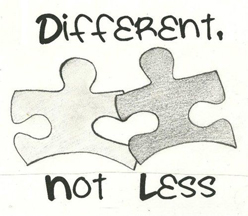- News Front Page
- Uncategorized
- Headline News
- Filipino Calgarian
- Business
- Pinoy Stories
- Community News
- Publisher's Note
- The Main Ingredient
- Views and Opinions
- Maikling Kwento
- Alberta News
- OFW – Month
- Travel News
- Health and Lifestyle
- Pinoy Toons
- Pinoy Spirit
- Entertainment
- The Philippine Lawyer
- Horoscope
- Greetings
- Editorial
- About Us
- Greetings From the Prime Minister
- Greetings from the President of the Philippines
- Greetings from the Premier of Alberta
- Greetings from the Mayor of Calgary
- Advertise With Us
- Disclaimer
- Subscription
Publisher's Note
- Publisher’s Note
 HAPPY NEW YEAR! HAPPY THREE KINGS!
As we are now in 2019, new year, new beginnings, new challenges and new opportunities. Everyone is entitled to make their new year’s resolution for as long as they keep it in mind and make sure that they do it to the best of their ability. When I was young [...]
HAPPY NEW YEAR! HAPPY THREE KINGS!
As we are now in 2019, new year, new beginnings, new challenges and new opportunities. Everyone is entitled to make their new year’s resolution for as long as they keep it in mind and make sure that they do it to the best of their ability. When I was young [...]
Visitors to Pinoytimes
Page added on February 22, 2017
AUTISM

What is autism?
Autism is a brain disorder that often makes it hard to communicate with and relate to others. With autism, the different areas of the brain fail to work together.
Most people with autism will always have some trouble relating to others. But early diagnosis and treatment have helped more and more people who have autism to reach their full potential.
What causes autism?
Autism tends to run in families, so experts think it may be something that you inherit. Scientists are trying to find out exactly which genes may be responsible for passing down autism in families.
Other studies are looking at whether autism can be caused by other medical problems or by something in your child’s surroundings.
False claims in the news have made some parents concerned about a link between autism and vaccines. But studies have found no link between vaccines and autism. It’s important to make sure that your child gets all childhood vaccines. They help keep your child from getting serious diseases that can cause harm or even death.
What are the symptoms?
Symptoms almost always start before a child is 3 years old. Usually, parents first notice that their toddler has not started talking yet and is not acting like other children the same age. But it is not unusual for a child with autism to start to talk at the same time as other children the same age, then lose his or her language skills.
Symptoms of autism include:
- A delay in learning to talk, or not talking at all. A child may seem to be deaf, even though hearing tests are normal.
- Repeated and overused types of behaviour, interests, and play. Examples include repeated body rocking, unusual attachments to objects, and getting very upset when routines change.
There is no “typical” person with autism. People can have many different kinds of behaviours, from mild to severe. Parents often say that their child with autism prefers to play alone and does not make eye contact with other people.
Autism may also include other problems:
- Many children with autism have below-normal intelligence.
- Teenagers with autism often become depressed and have a lot of anxiety, especially if they have average or above-average intelligence.
- Some children get a seizure disorder such as epilepsy by their teen years.
How is autism diagnosed?
There are guidelines your doctor will use to see if your child has symptoms of autism. The guidelines put symptoms into categories such as:
- Social interactions and relationships. For example, a child may have trouble making eye contact. People with autism may have a hard time understanding someone else’s feelings, such as pain or sadness.
- Verbal and non-verbal communication. For example, a child may never speak. Or he or she may often repeat a certain phrase over and over.
- Limited interests in activities or play. For example, younger children often focus on parts of toys rather than playing with the whole toy. Older children and adults may be fascinated by certain topics, like trading cards or licence plates.
Your child may also have a hearing test and some other tests to make sure that problems are not caused by some other condition.
How is it treated?
Treatment for autism involves special behavioural training. Behavioural training rewards appropriate behaviour (positive reinforcement) to teach children social skills and to teach them how to communicate and how to help themselves as they grow older.
With early treatment, most children with autism learn to relate better to others. They learn to communicate and to help themselves as they grow older.
Depending on the child, treatment may also include such things as speech therapy or physiotherapy. Medicine is sometimes used to treat problems such as depression or obsessive-compulsive behaviours.
Exactly what type of treatment your child needs depends on the symptoms, which are different for each child and may change over time. Because people with autism are so different, something that helps one person may not help another. So be sure to work with everyone involved in your child’s education and care to find the best way to manage symptoms.
How can your family deal with having a child with autism?
An important part of your child’s treatment plan is making sure that other family members get training about autism and how to manage symptoms. Training can reduce family stress and help your child function better. Some families need more help than others.
Take advantage of every kind of help you can find. Talk to your doctor about what help is available where you live. Family, friends, public agencies, and autism organizations are all possible resources.
Remember these tips:
Plan breaks. The daily demands of caring for a child with autism can take their toll. Planned breaks will help the whole family.
- Get extra help when your child gets older. The teen years can be a very hard time for children with autism.
- Get in touch with other families who have children with autism. You can talk about your problems and share advice with people who will understand.
Raising a child with autism is hard work. But with support and training, your family can learn how to cope.
For 24/7 nurse advice and general health information call health Link at 811.
Source: www. myhealth.alberta.ca
Current as of: November 20, 2015
Translated with permission from Healthwise Inc.© and is not intended to replace the advice of care you
get from your provider or other healthcare professional. Always consult your health professional for medical diagnosis and treatment.
RELATED STORIES
LATEST HEADLINES
- Supporting Visible Minority Newcomer Women in Calgary
- Pinoy Times 10th Year Anniversary Celebration
- MOTION RECOGNIZING JUNE AS FILIPINO HERITAGE MONTH PASSES CANADA’S PARLIAMENT
- Manmeet Singh Bhullar Park officially opens in Calgary
- CORONATION OF MS. BARANGAY 2018 OF THE GOLDEN GENERATIONS SENIORS CLUB OF CALGARY
COMMUNITY NEWS
 NOTICE TO MEDIA
NOTICE TO MEDIA Message from the Mayor
Message from the Mayor Message from the Premier of Alberta
Message from the Premier of Alberta Message from the Prime Minister of Canada
Message from the Prime Minister of CanadaPINOY STORIES
 Hacking a Pinoy Christmas abroad
Hacking a Pinoy Christmas abroad- Holy Week practices in the Philippines
PINOY SPIRIT
HAVE YOUR SAY
Lorem ipsum dolor sit amet, consectetur adipiscing elit, dolor sit ipsum.PROMOTIONAL BLOCK
Lorem ipsum dolor sit amet, consectetur adipiscing elit, dolor sit ipsum.TRAVEL NEWS
PINOY TOONS
Tags
Archives














